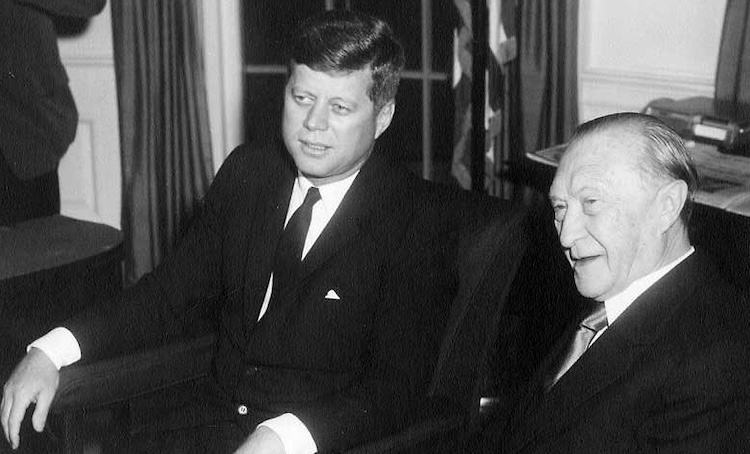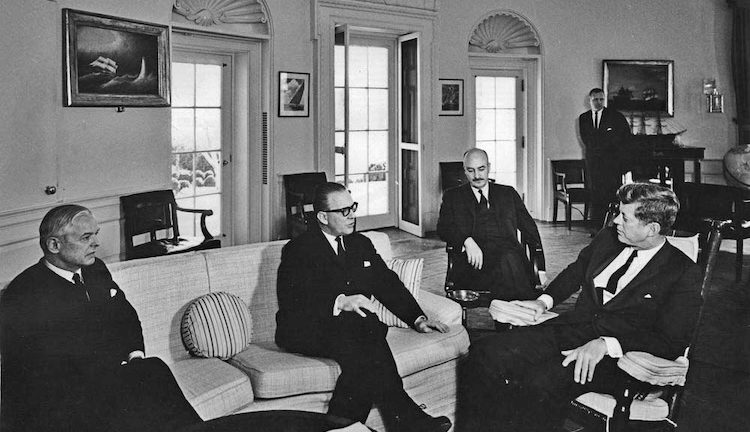By Jonathan Power*
LUND, Sweden | 30 April 2024 (IDN) — Rightly the debate over a way to end the Iranian (nuclear?) bomb crisis remains one of the prime issues in Western foreign policy. Compared with that the partial war in Ukraine seems to be almost trivial. Likewise, Israel versus Hamas, the de facto rulers of Gaza, is not on the scale that would upend the whole Middle East as it would if Iran used its supposed-to-be nuclear weapons, and Israel followed suit.
Also compared with that, the struggle to defeat ISIS/to topple Assad of Syria/ to defeat the Houthis in Yemen is less consequential. These three problems if not solved can be contained. None of them threaten the world.
But nuclear bombs? One nuclear bomb going off would bring the world figuratively to its knees. A large part of the world would be fear-ridden that there would be a second, and a third, and a fourth… The mighty taboo against using them, in place since their use on the Japanese cities of Hiroshima and Nagasaki by the Americans, would be cast aside, we could then all too easily imagine them being used by Pakistan against India or vice versa. By China against Japan. By North Korea against the South. Worst of all, by Russia against the US or vice versa.
The Iranian “bomb” negotiations, once fruitful under President Barack Obama, are now suspended, thanks to President Donald Trump who decided to sabotage them.
Perhaps only one in a million of the world’s people, if that, is aware of how successful the fight against nuclear proliferation has been so far—only four new nuclear bomb powers outside the permanent big five members of the Security Council.
On several occasions, countries have played with fire only to self-quench. Libya under Muammar al-Gaddafi voluntarily handed over to the US and UK its bomb-making facilities; South Africa, Sweden, Iraq, South Korea, Argentina and Brazil (although Brazil still has a nuclear enrichment program far larger than Iran’s but one that is tolerated by the US). But the most dangerous of all was West Germany.
How West German plan to build a bomb was blocked
Only 13 years after its defeat in World War II, the West German leadership was intent on building a bomb. If it had gone ahead, the Soviet Union undoubtedly would have taken pre-emptive action and destroyed Germany for the second time in a generation.

President Kennedy asked West German Chancellor Konrad Adenauer on 21 November 1961 if he was committed to the non-nuclear weapons pledge that he made in September 1954. Credit: John F. Kennedy Presidential Library.
Despite the reassurance provided by the creation of NATO and the Marshall Plan, the German leadership argued that the US commitment to defend West Germany from a Soviet-led attack was questionable. Chancellor Konrad Adenauer declared that he opposed a situation where “America is a fortress for itself because that would mean we would be outside that fortress.”
In July 1956, he wrote to US Secretary of State John Foster Dulles that “Europe, including Germany, has lost its confidence in the US’s reliability”. A few months later Adenauer vowed to acquire the “most modern weapons for Germany”. In April 1958 Germany signed an agreement with Italy and France for the development of a secret nuclear bomb-making program. Washington and London eventually discovered it and, under pressure, the three of them officially ended their accord. But secretly Germany and France continued to plan for a bomb.
The Soviet Union was alarmed
Thinking himself clever, President John Kennedy proposed the creation of a multilateral force (MLF) to integrate national nuclear arsenals under a single command within NATO. Part of the motivation was to satiate Germany’s appetite for nuclear weapons. But West Germany looked at it another way. After endorsing the MLF proposal Adenauer stated, “We must arrange within NATO so that a decision can be taken to use atomic weapons before the US president is heard from”.
The Soviet Union was alarmed. It worried that a US veto over the use of MLF nuclear weapons might fail. It also thought that Germany would obtain from its participation in the MLF the knowledge to develop its own nuclear weapons. Soviet President Nikita Khrushchev told Kennedy that the MLF would be a “crack” in non-proliferation efforts and “once such a crack exists there will be found fingers which will find their way to the control panels of these weapons”.
Khrushchev’s successor, Alexei Kosygin, warned that the Soviet Union would be “forced to take all measures which it would consider necessary for securing peace in Europe “in the event that West Germany got access to nuclear weapons” in any form. It was very understandable. Hitler’s troops only a few years before had devastated Russia. Washington got the message and turned away from its MLF proposal. At the same time, it brought extreme pressure to stop Germany’s urge to proliferate. Under the more pacific chancellor, Willy Brandt, Germany signed the new-born Nuclear Non-Proliferation Treaty in November 1969.
Germany was stopped in its tracks. So must be Iran, if indeed its intention is to build a bomb. Halting nuclear proliferation and avoiding nuclear war must be the world’s number one concern—and that applies to Israel too. The negotiations with Iran that Obama authorised, Trump reversed, and President Joe Biden has practically ignored, desperately need to be re-started.
Note: For 17 years, Jonathan Power was a foreign affairs columnist for the International Herald Tribune. [IDN-InDepthNews]
Copyright Jonathan Power
Visit: www.jonathanpowerjournalist.com

